Blue porcelain cup Masao Tagai
Blue porcelain cup Masao Tagai
Couldn't load pickup availability
Width: 8.8cm x 8.8cm Height: 3.5cm
Work summary
This is a **seijihai** made by Masao Tagai. It features a shallow lotus-petal shape, and the wide rim captures the light reflected on the surface of the sake softly, creating a cool and elegant look at the same time.
molding
| item | Features | Key points for viewing |
|---|---|---|
| Form | The shallow bowl shape with a low body and a gently tapered base with a nearly horizontal rim creates a sense of openness. | When viewed from above, it maintains a perfect circle, but the taut curves on the sides create a lotus leaf-like surface . |
| Heights | It is small but has a curved shape reminiscent of the bottom of a go bowl . The slight shadow emphasizes the lightness of the entire piece. | The iron coloring on the sides of the foot accentuates the gentle blue of the celadon, drawing the eye downwards. |
| Mouth rim | Extremely thin iron wrapping (light brown and dark iron) runs through the piece, and the contrast between blue and brown accentuates the contours of the piece. | It has a smooth yet taut mouthfeel, and feels incredibly soft on the lips. |
Glaze tone
The pale blue color produced by reduction firing has a moist transparency reminiscent of the Ru kilns of the Northern Song Dynasty. When exposed to light, a pale gradation is created, and the halo reflected in the center of the inside adds to the atmosphere of a mirror on water.
Mirror texture and suppression of crazing <br data-start="631" data-end="634">The expansion rate of the base and glaze are precisely matched to minimize crazing. This makes the glass smooth to the touch, allowing you to enjoy the sake without it affecting its quality.
Glaze Thickness Control <br data-start="708" data-end="711">By making the center of the glaze slightly thicker and the edges thinner, a pale, transparent blue layer is created, giving the vessel a sense of depth.
Uses and enjoyment
| scene | How to enjoy | Directing tips |
|---|---|---|
| Cold sake/Light sake | The wide rim allows the sake's aroma to easily emerge, making it ideal for ginjo sake and fruit liquor. | The moment the cold sake is poured, the light reflects off the surface and outlines the water . |
| Decorative cups for tea ceremonies | It is served with yokan and seasonal dried sweets and placed in front of the guests to create a cool and refreshing atmosphere. | Combined with paper strips and flowers, the blue of the celadon ware is effectively arranged to resonate with the ink color of the hanging scroll. |
| Room Arrangement | Place it in a niche in your study or entrance hall and enjoy the light that shines on the glaze surface with natural or indirect lighting. | Add a small amount of water and float some young leaves or fragrant flowers to create a tranquil waterscape . |
Historical background
Celadon cups originated as sake vessels beloved by Chinese literati during the Song Dynasty, and were highly valued in Japan as Chinese goods brought to Japan by Zen monks from the Kamakura period onwards. With the spread of tea ceremony culture during the Momoyama period, they came to be regarded as "vessels that bring coolness" and were used in summer tea ceremonies over a brazier. This piece was designed to harmonize with modern aesthetic sensibilities while keeping in mind that context.
Artist profile and technique
Masao Tagai (resident of Osaka)
Based on research into ancient Chinese ceramics, he has been researching his own unique blend of celadon glaze.
With the theme of "tranquility in the palm of your hand," he creates mainly small pieces such as sake cups, sake cups, and incense burners.
Mr. Tagai has been making multiple prototypes in his pursuit of a "blue that reflects light."
This work, "Celadon Sake Cup," has a sense of freedom due to its shallow bowl shape . It has a cool feeling created by the moistness of the blue color after the rain . The thin iron-wrapped rim gives it a quiet tension. These elements resonate in perfect balance, bringing a fresh and calming feeling to any space, whether it be a sake ceremony, tea ceremony, or formal ceremony. We hope you will enjoy this small universe, which is a condensed version of Masao Tagai's sophisticated technique and profound aesthetic sense, for a long time.
A conversation with Masao Tagai – High-end pottery specialty store [Amagi-do]
Share
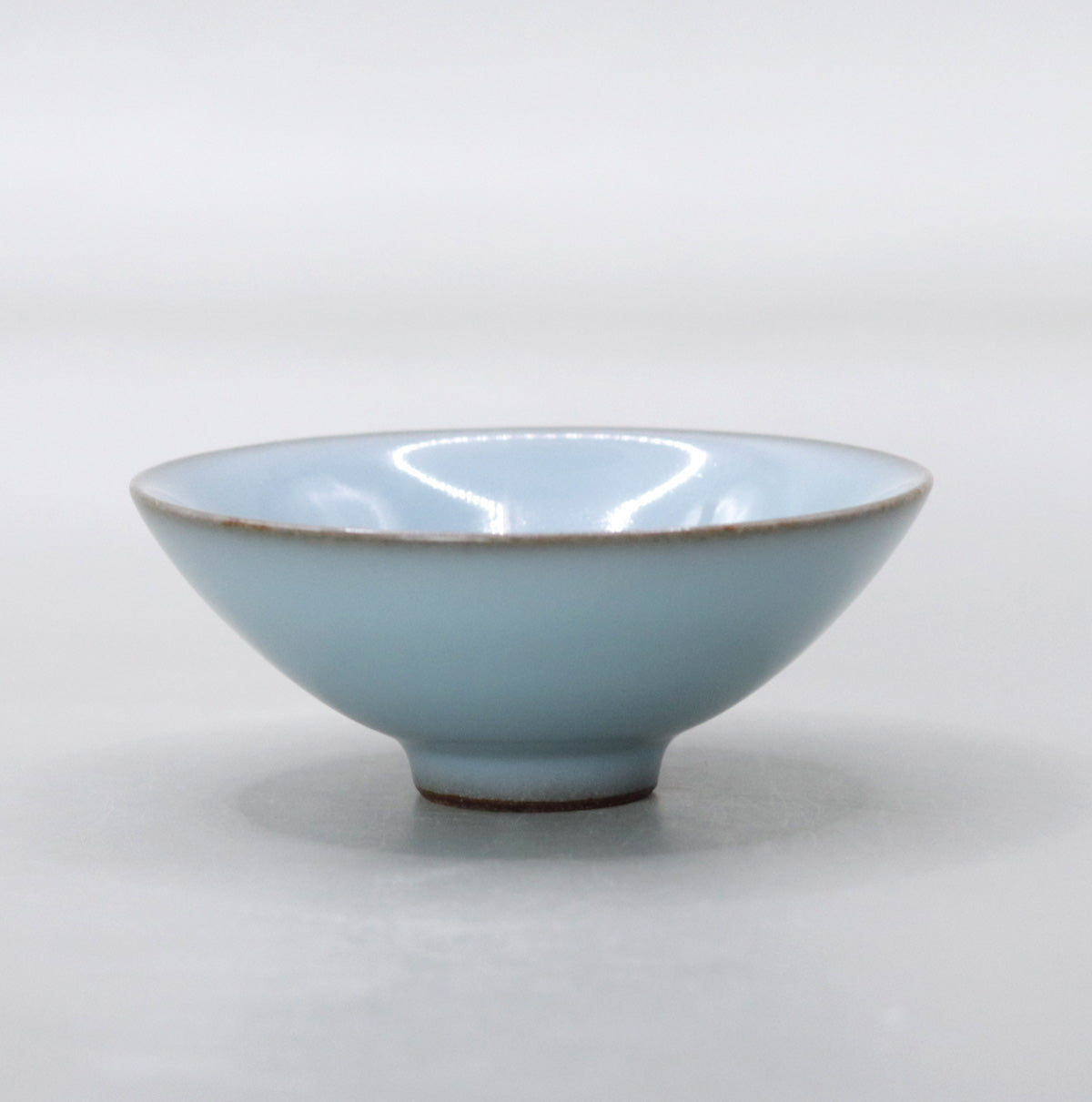
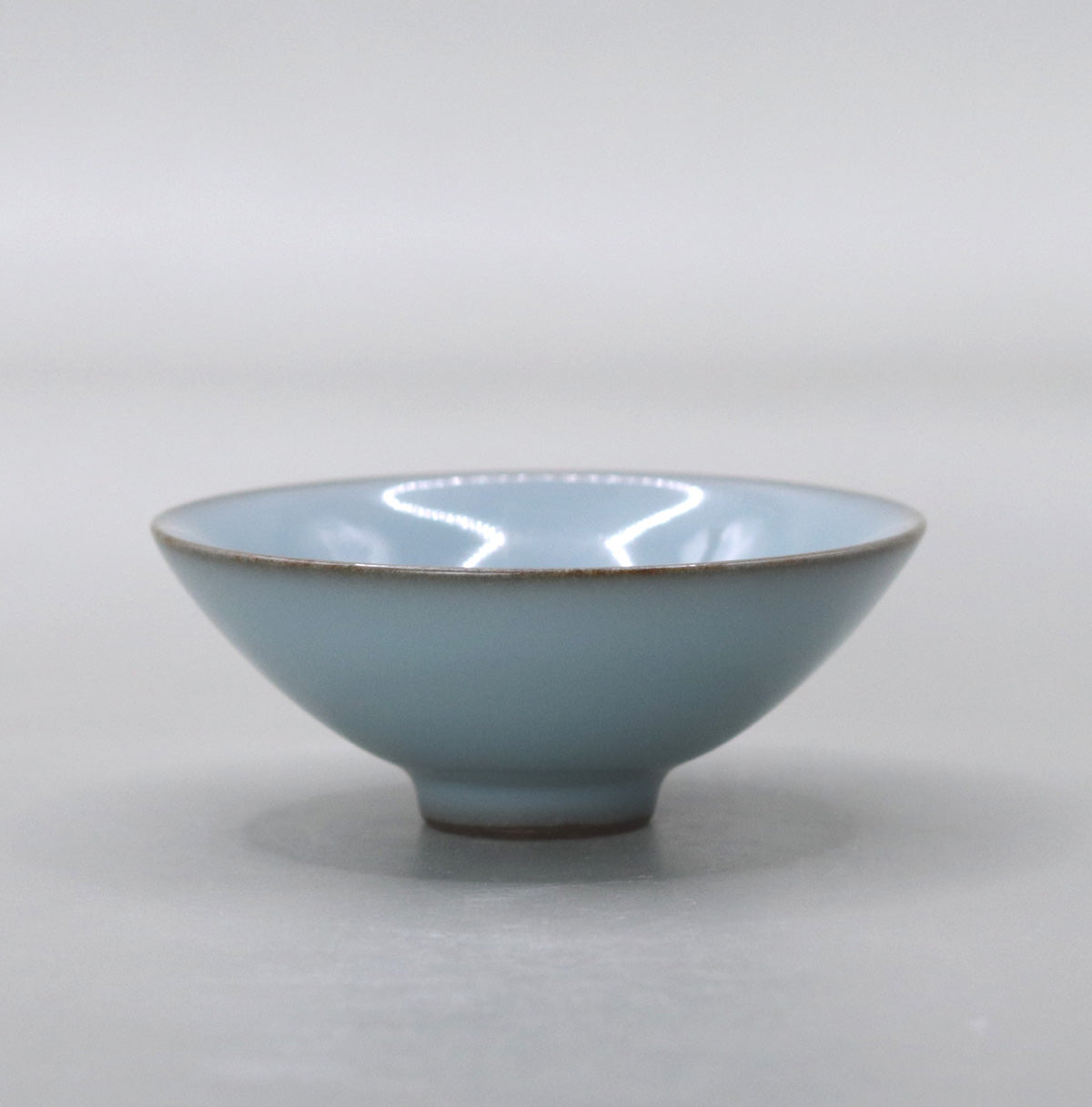
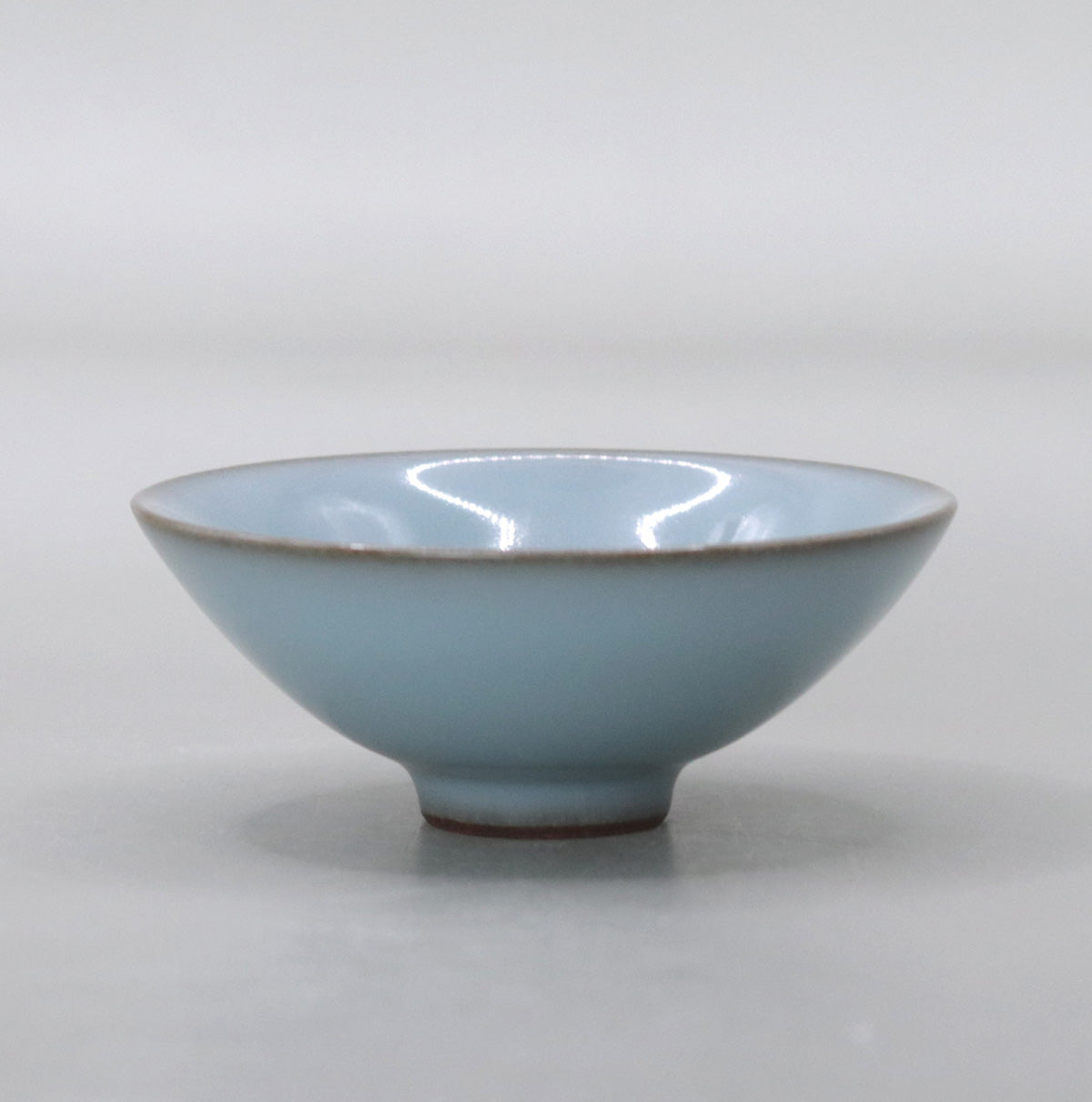
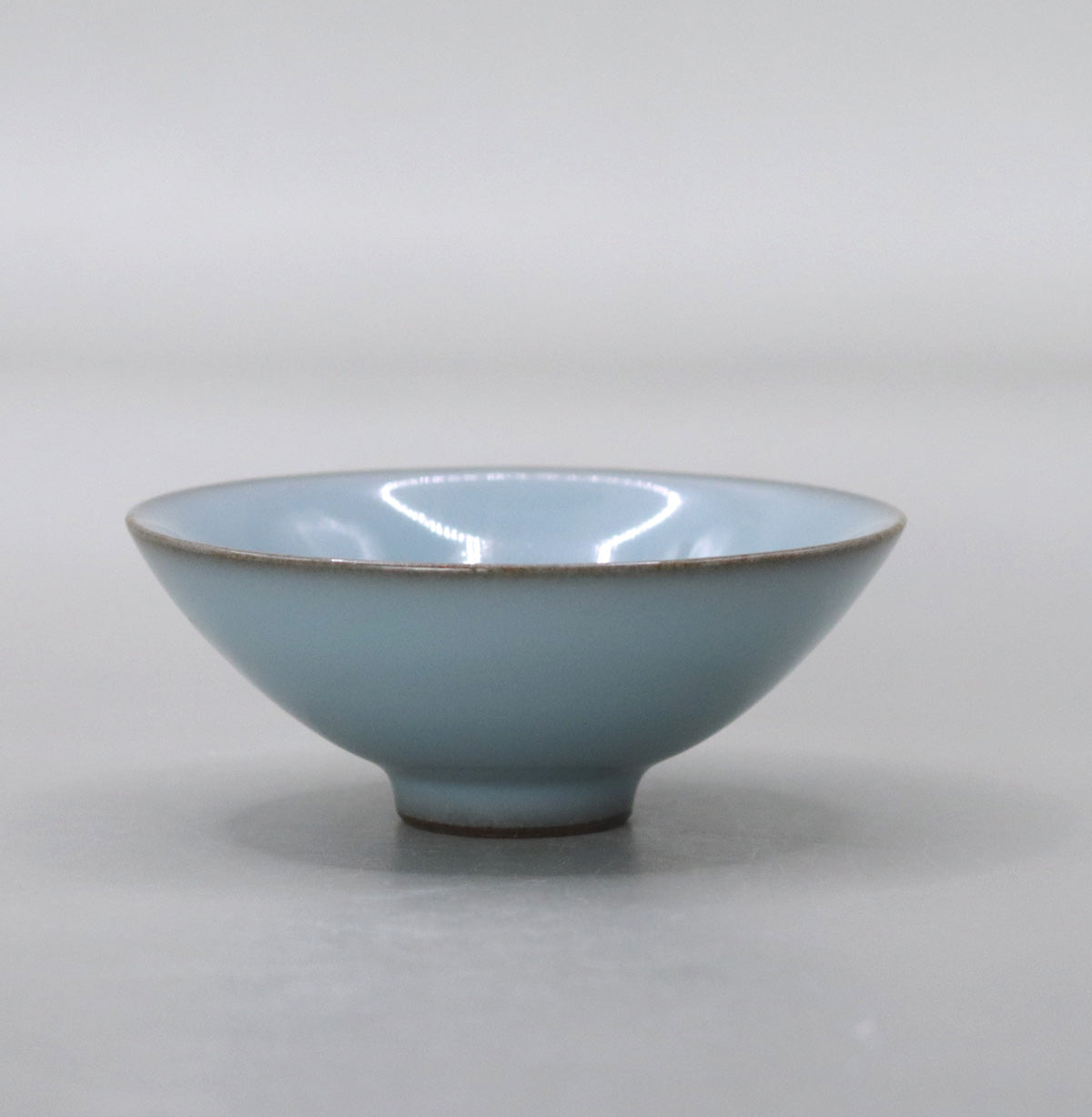
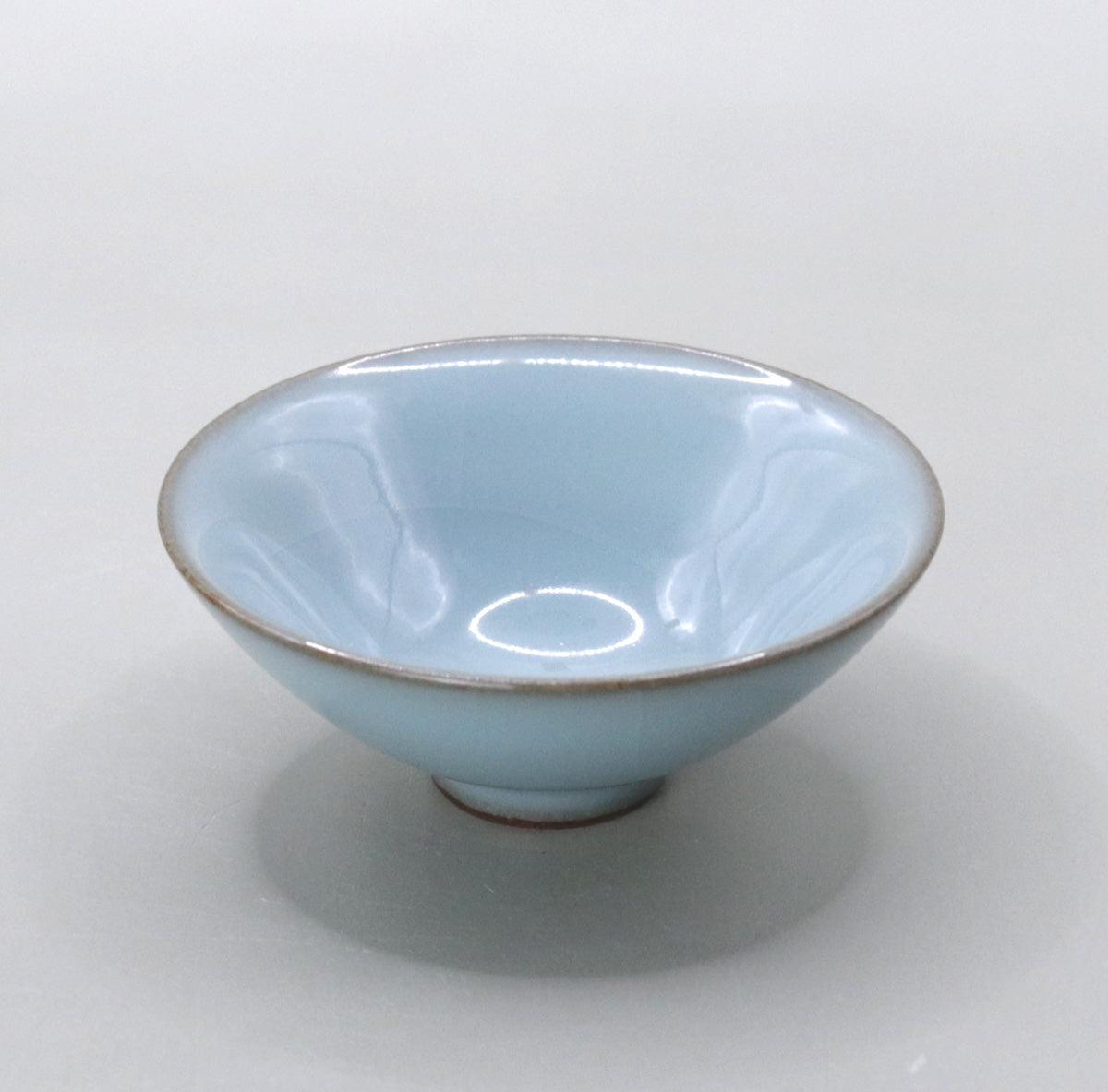
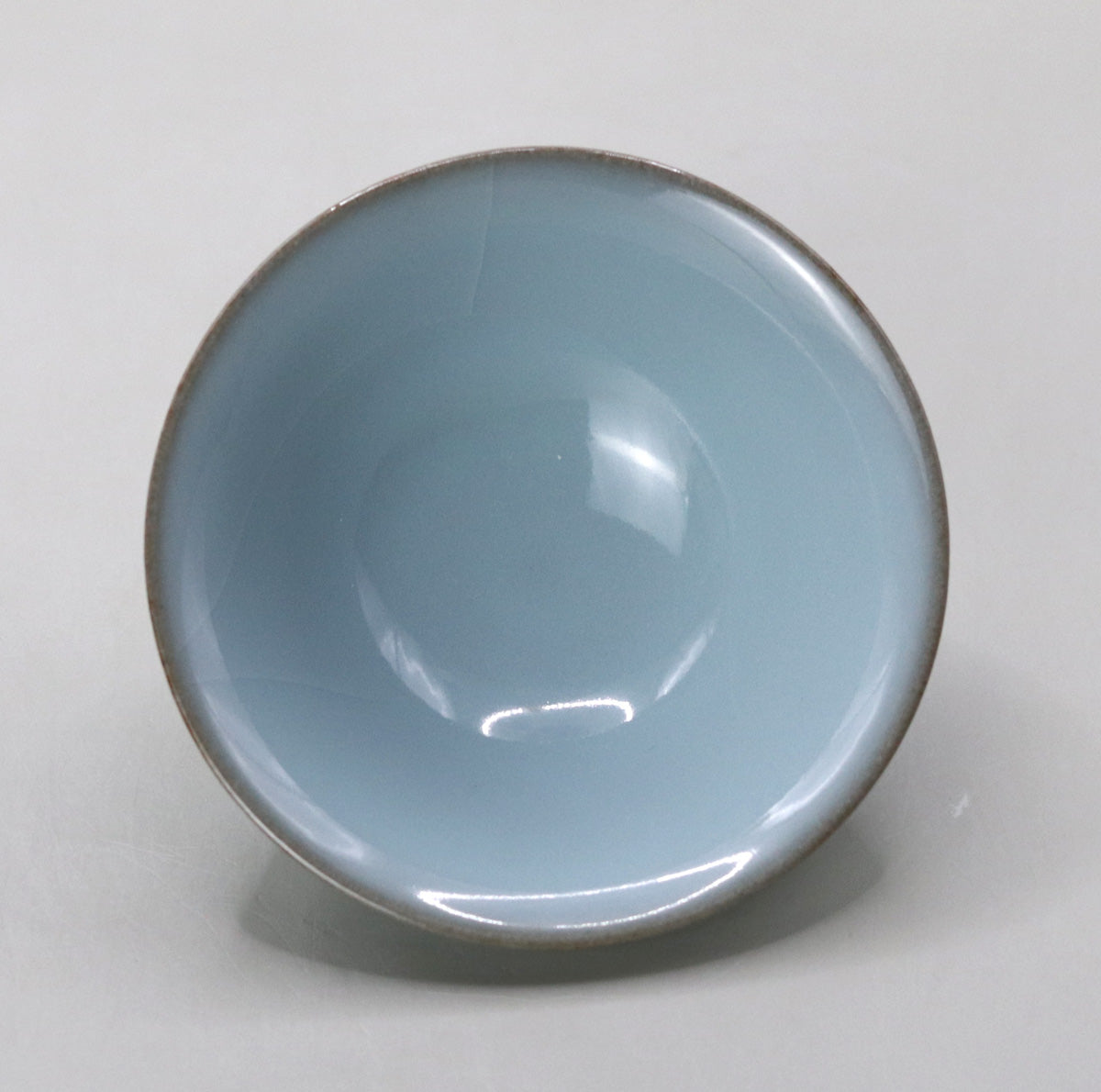
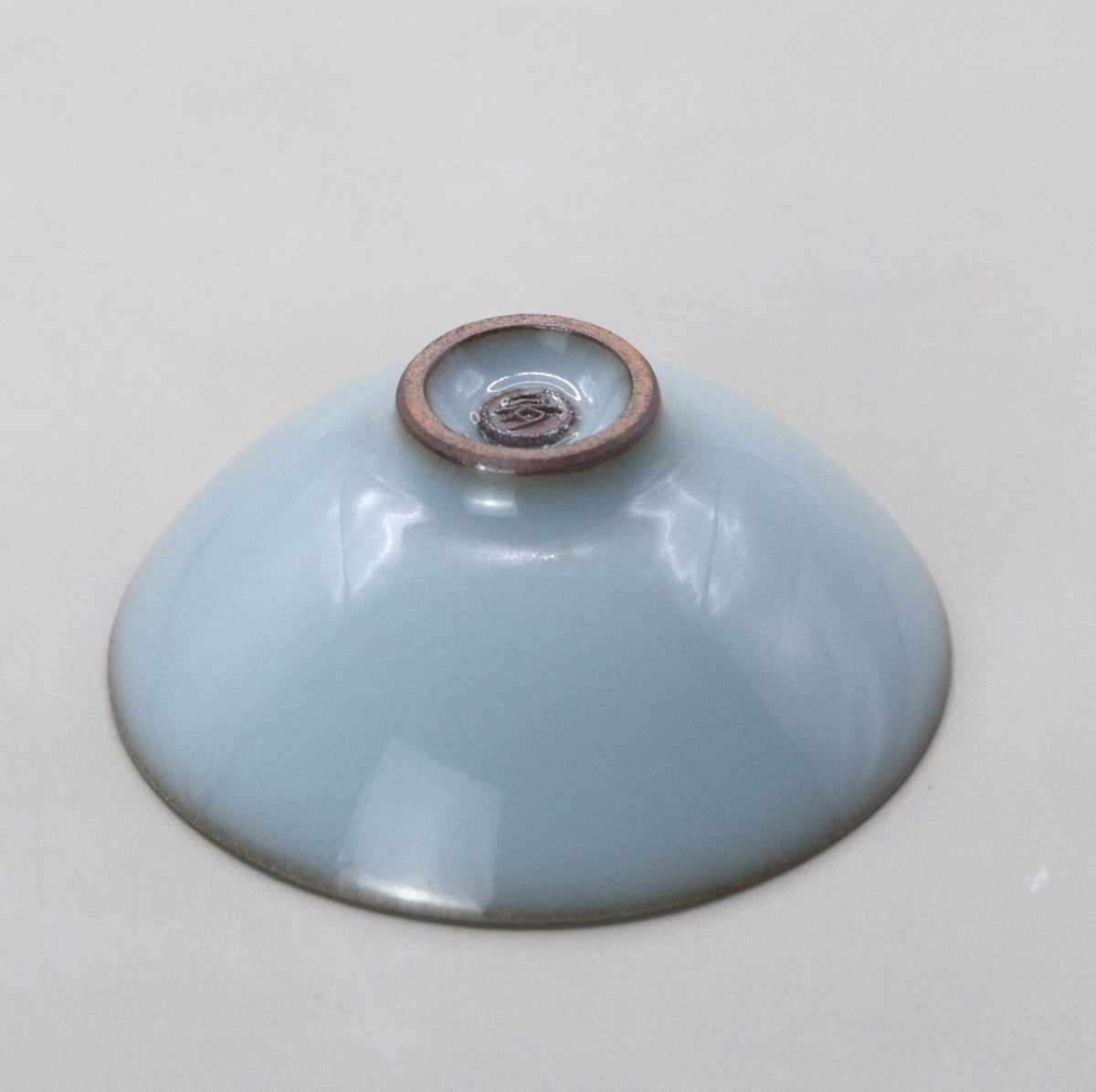
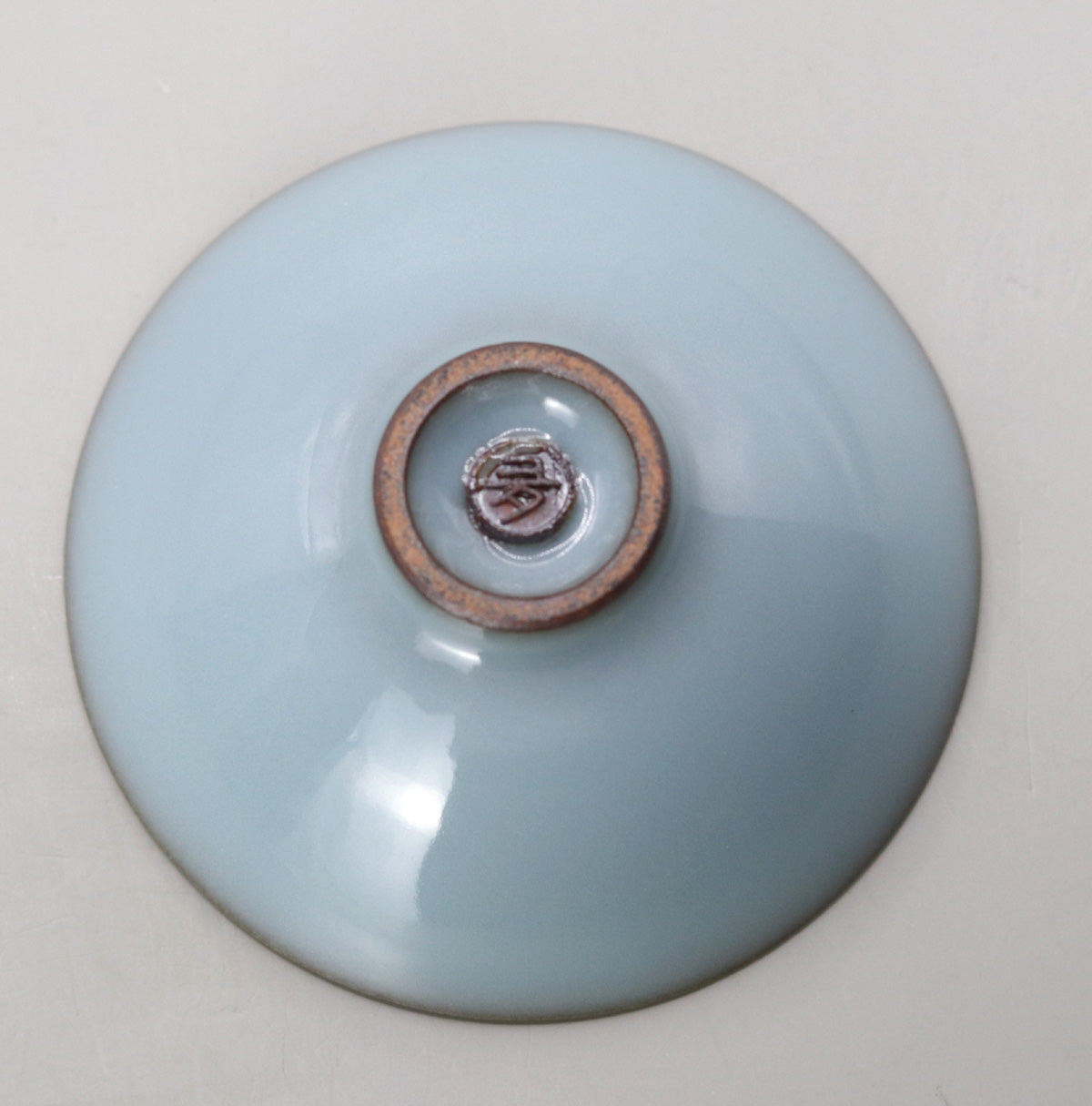
Multi-Column
-
[I will send it to you quickly and carefully]
We carefully package each product in a way that suits it best.
Also, delivery times vary depending on the piece (vessel, etc.).
Items that already come with a box will be shipped within 1-3 days of the order date.
For items that require a box to be made after your order, it will take approximately 30 days for production to be completed and then shipped.
In either case, once we have confirmed your order, we will contact you by email to inform you of the delivery date.
-
[Requests when purchasing pottery]
Even products that look the same may differ slightly in color, shape, size, etc.
The way the glaze is used, the power of the kiln, the firing method, the season, and the humidity also affect the appearance of the pottery.
Please understand the individuality of each piece of pottery and enjoy the unique warmth of handmade.








